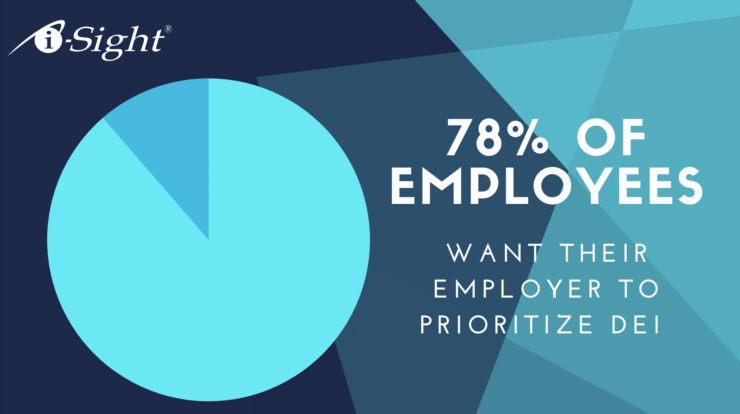
DEI’s Start
Since its roots in the civil rights movement and affirmative action in the 1960s, diversity, equity, and inclusion (DEI) has evolved. Today, it is one of the most salient business concerns, with virtually every company in different jurisdictions across the world looking to reap the value of DEI principles.
Foundationally, DEI revolves around fair treatment of people, regardless of race, gender, ability, and other identity characteristics. Yet, it has made significant shifts during the years, as businesses and experts continue to determine how to achieve its goals.
DEI’s Direction Ahead
Based on our CHROs2Go work with clients, here are the insights and forecasts from Marilyn Nagel, DEI Expert and Dr. Hamlin, CHROs Lead Partner.
- The topic of DEI has undoubtedly evolved, moving away from the view of it as a compliance issue towards it being beneficial for the business’s bottom line. This evolution is continuous, and the gains of the past will have long-lasting positive impacts on the DEI situation of the future.
- In a climate of political polarization in the US and many other countries, the DEI platform is a way to strengthen company culture and create an environment of respect for one another. This does not mean everyone will agree on every position or that the organization should take a stand on all geopolitical issues. Good DEI initiatives are integrated into the fabric of the business, connecting employees with customers and the business goals, showing employees their company is making a positive impact on their communities and the environment.
- There are many misconceptions about DEI today, including that it is about being overly progressive or “woke”. We disagree: DEI is about facilitating an environment where everyone can work at their full potential, with the organization leveraging everyone’s contributions to succeed. To achieve this full potential, the organization must include a broad range of identities, across race, gender, age, religion, physical ability, neurodiversity, introversion/extroversion, and many more qualities that each person brings to their job.
- More and more employees are saying, ‘We want to know that our company is doing good. If it’s not doing good, then at least it should be doing no harm.’ Employees and customers are also now concerned about whether the company is environmentally sound and making a positive difference in the community. DEI work helps connect people to the company’s culture and to their work, reflecting the values the company puts on the wall or their employee badge. Employees today want to work for a company whose values resonate with them. And customers want to do business with companies that support sustainability, and the communities where they are based.
- These points will become even more important in the future, as those entering the workforce have already been exposed to DEI concepts. The new generation of employees are more diverse, are champions of rights and benefits that are equitable, and are adamant about everyone being treated respectfully. They demand equity for their underrepresented colleagues and expect mental health benefits, paternal leave, and work from home and other ways to achieve work-life balance options. This generation is not willing to work at the pace that their parents did. Many of these are now non-negotiables for the younger generations, and they won’t work for a company that doesn’t share their values or offer extensive equitable benefits.
- As younger workers move into management and board roles they will have the power to change organizational cultures and remove any entrenched obstacles to full inclusion and equity.
Our Approach: How to Make a Difference
In our work, we find it effective to use a data-driven approach. We provide the leadership team employee engagement survey results that show representation, inclusion, and the strengths and opportunities across the organization and by function and location.
Based on these data, we co-create a roadmap to drive inclusion within each function, which, together, impacts on the organization overall. The focus is on accountability at every level with detailed plans for improvement two levels below the CEO. Our solutions are not centered on unconscious bias training or microinequities, which has been proven multiple times to be ineffective. Simply being aware of biases or inequities does not change behavior. We ask leaders to commit to two to three measurable actions that drive inclusion. One example might be inviting a new hire or someone from another function to a decision-making meeting to get an outside perspective. This action adds a diverse perspective and broadens inclusion.
While D comes before I in the acronym DEI, we say it is important to put the focus on inclusion. Many companies focus on hiring goals based on diversity. This is ineffective, illegal, and short-sighted as it only increases representation and doesn’t give under-represented people a voice.
Diversity is indeed important, but it’s what you do with it that’s even more so. It’s not enough to just bring people to the party. They need to feel welcome and encouraged to participate, and systems must be in place to ensure they are not marginalized. Tokenism only widens the divide, and it backfires. Real success lies in breaking down silos. When people are hired just to represent their race, gender, disability, etc. they are at a disadvantage for a number of reasons: 1) they are seen as the “diversity hire,” 2) their credentials are challenged, 3) they often don’t get support from peers, 4) they are expected to fail (the Pygmalion effect) and 5) they are frequently asked to represent an entire group, so they are not set up to succeed.
We advise clients to focus on developing the existing individual contributors or first-line managers and help them move up through the ranks. Often this population is rich in diversity. By developing, retaining, and engaging these individuals, the organization gets the maximum potential from current members because they feel included, heard and valued. This does not preclude adding diverse qualified candidates when openings arise, but companies should first consider their in-house talent and fully develop them.
It is always a smart idea to develop talent and support the growth of your existing employees. At times, bringing in new talent is necessary, but if that is the norm at higher levels, employees will leave, and the company’s reputation and culture will suffer. We’ve worked with organizations on developing an inclusive culture and have seen them become more diverse than those who try to force it by hiring quotas that put them at risk and can compromise the integrity of the hiring process. This is what we mean by putting I before D,” based on our work across industries and companies.
For any DEI efforts you have ahead, we are here to support you. Feel free to contact us for guidance: dhamlin@chros2go.com or 510-517-7791
 Donna Hamlin, Ph.D.
Donna Hamlin, Ph.D.
Dr. Donna Hamlin leads the CHROs2GO practice in the 2GO Advisory Group, providing HR and corporate governance best practices services, education and independent evaluations. She works with clients to improve human and organizational
performance. Working a cross a wide range of industries, she has worked with companies in more than 54 countries and brings a cultural insight for solutions globally.
 Marilyn Nagel
Marilyn Nagel
Co-Founder, Chief Advocacy Officer RISEQUITY
Prior to co-founding RISEQUITY, Marilyn served as CEO of Watermark launching their Conference for Women and created breakthrough programs while Chief Diversity Officer at Cisco. She was recognized as a thought leader in shifting the focus to inclusion, launching the first Inclusion Index, flexible work practices, and developed the Maturity Model for Diversity, Equity and Inclusion that has become an industry standard. Marilyn has co-chaired the Conference Board Global Diversity Group, formed a consortium in Silicon Valley for STEM Diversity Officers and was a senior advisor to the Center for Talent and Innovation.
Marilyn consults with pre and post IPO companies, fortune 500 and global multinational companies on developing and implementing diversity strategies. She is an internationally known speaker and workshop facilitator on topics such as Inclusive Leadership, Building Intentional Connections, Inclusive Hiring, Creating Influence, as well as Board Accountability and Women’s Leadership. She has been a regular blogger for the Huffington Post and Medium, and frequently contributes to numerous publications. https://www.huffpost.com/author/marilyn-nagel
